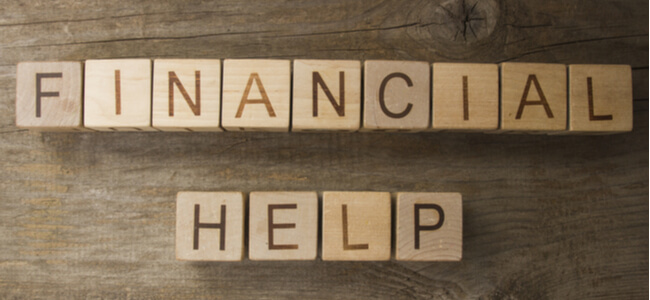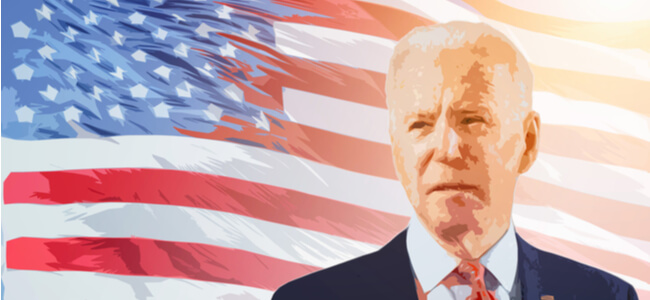The Steps State Governments Are Taking To Help Student Borrowers

The outbreak of coronavirus has led to many people losing their income. Student loan borrowers are finding it difficult to make monthly repayments. Recently, the federal government provided some relief measures to borrowers through the CARES Act. The benefits are limited to federal student loan borrowers only.
Moreover, state governments have also stepped forward to provide relief measures to private student loan borrowers. Read on to know more about the proposed relief measures and if you’re eligible for them.
How It Works
According to the agreement between private lenders and the governments of Washington, New Jersey, Illinois, California, and a few other states, private lenders are urged to:
- Offer forbearance for 90 days
- Temporarily waive off the late payment charges
- Stop issuing negative credit reports
- Temporarily pause all debt collection lawsuits
- Guide borrowers to enroll in suitable debt assistance programs
This agreement is applicable to all private student loans and commercial FFEL loans. Borrowers need to contact their loan servicer and inquire about applying forbearance. However, keep in mind that interest will be accruing on the principal during this period. This will be later added to the outstanding balance.
Listed below are some of the lenders that are a part of this agreement:
- College Ave
- Aspire Resources
- Earnest Operations
- Navient
- United Guaranty Services.
- MOHELA
- Vermont Student Assistance Corp
- Kentucky Higher Education Student Loan Corp
- Edfinancial
- Nelnet
- Tuition Options
- LendKey
- Utah Higher Education Assistance Authority
- SoFi
- Upstart Network
Student Loan Relief Options According To Your State
Student loan relief options vary from one state to another. Below are the policies implemented in some of the affected states.
- New York: New York state has agreements with loan servicers and lenders to facilitate 90 days of forbearance, not issue negative credit reports, waive late fees, pause various lawsuits involving debt collection, and help borrowers get enrolled in certain assistance programs. Student debts that are owed to the state are temporarily suspended
- Washington: Washington's agreement with loan servicers and lenders facilitates 90 days forbearance, to not issue negative credit reports, to waive late fees, pause various lawsuits involving debt collection, and to also help borrowers get enrolled in certain assistance programs
- Massachusetts: The agreement with loan servicers and lenders involves the facilitation of 90 days forbearance, to not issue negative credit reports, to waive late fees, pause various lawsuits involving debt collection, and to also help borrowers get enrolled in specific assistance programs. Student debts were deferred from April to July 2020 and a no-interest program was also put in place. The state of Washington is also proceeding with a suspension of the loan collection action for at least 90 days
- Illinois: Illinois State has an agreement with loan servicers and lenders that involves 90 days of forbearance, late fees waiver, pausing the collection process for debts, issuing no negative credit reports, and enrollment in assistance programs to deal with debts. Wage garnishment is also suspended for private mortgages
- California: The state of California also has the 90 days of forbearance policy, no negative credit card issuing policy, late fee waivers, and a pause in debt collection activities. The state has also made it clear that those with ongoing debts won’t have any COVID-19 related financial aid garnished
The Importance Of State Relief
As per the CARES Act, all federal student loan borrowers are entitled to six months of forbearance on their debts. During this period, interest won’t be accrued on the loan. This Act doesn’t provide any relief to private student loan borrowers or to the borrowers of commercially held FFEL loans. Hence, state governments had to step up and consult with the private lenders to come to an agreement.
As a result, most private lenders have now agreed to offer a forbearance of 90 days to private student loan borrowers. This state relief will be helpful for the many borrowers who are facing financial hardships in this pandemic.
What If You Can't Get State Relief?
If your state has facilitated relief measures and you find difficulties in getting the work done with your loan provider, you have the right to get a state attorney involved.
To align your loan with the relief program, you can also seek help from your state's consumer protection department.
The state also provides you the right to escalate the issue to a federal level, in case you’re not satisfied by the solution offered.
Bottom Line
Student loan relief measures are being taken across various states to help private student loan borrowers. These measures help ease the financial burden among the borrowers. Check with your lender and see if you’re eligible for the relief.



